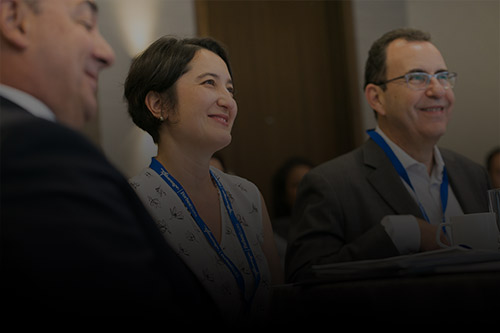Designing solutions for complex organizational problems requires a methodical approach; proven frameworks and methodologies; and committed stakeholders. Whether these stakeholders are participants, enthusiastic team members, or key decision-makers, seasoned Solution Designers know how critical it is to thoroughly recruit, commit, and engage these individuals.
The best approach requires the design process to include creating a safe environment for stakeholder participation – where failure is accepted as a natural step in building a sustainable solution.
Another important principle to remember is that you as a Solution Designer neither own the chosen solution nor will you get the laurels at the end of the implementation. This must be reserved for the stakeholders impacted by the solution at hand. In the end, you will leave and the solution will be sustained by the team left behind. Be certain that they own whatever they have agreed to implement.
Group thinking drives underperforming results
Recently, I listened to an interview with Francesca Gino, PhD., a professor of business administration in the Negotiation, Organizations & Markets Unit at Harvard Business School (HBS). Her research focuses on judgment, decision-making, negotiation, ethics, motivation, productivity, and creativity. In the interview, she discusses her recent book, Rebel Talent: Why It Pays to Break the Rules at Work and in Life, which contains results of her research and the lessons learned in her advisory services to large organizations.
Rebels and troublemakers: A critical difference that leads to different results
Professor Gino highlights that the results show that organizations with individuals who “rebel” against rules and norms tend to get better results. Sometimes by simply asking “Why?” and “What if?” you can achieve a superior performance. In instances like these, it pays to be a rebel!
On the flip side of this argument, when Facebook, Wells Fargo, and other successful organizations have been questioned for breaking rules, one must ask how easy it might be to cross the borderline between a rebel and a troublemaker.
Breaking the rules does not mean being unethical, says Dr. Gino. I fully agree with her; being a rebel drives higher performance by continually questioning the status quo. Rebels step outside of the standard operating procedure when they see there is a better path. Perhaps most importantly, their intentions are not purely self-serving. Rebels’ successes are tides that will raise all ships.
Breaking rules without weighing consequences, with no stakeholder engagement, and exercising poor listening skills is typical of troublemakers. Underperformance is the norm with troublemakers.
In my experience, you will need unshakable values to guide your company in order to maintain an ethos that is worthy of top talent and maximum effort.
It’s time to set free the non-conformist inside your team members, to tap into their natural curiosity and achieve superior results – open the front gates for the rebels!
